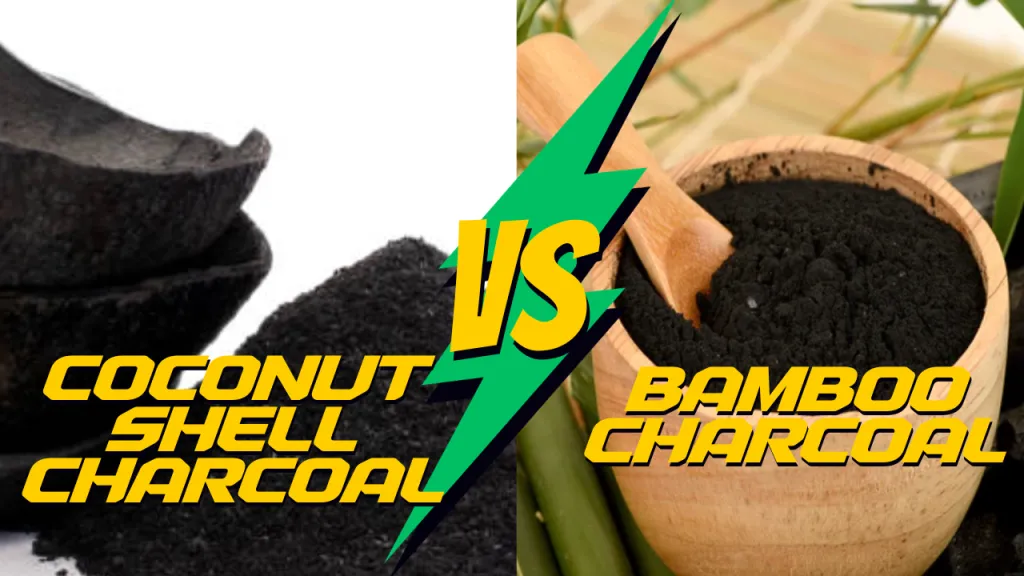Comparing Coconut Shell Charcoal and Bamboo Charcoal: A Detailed Guide
Coconut shell charcoal and bamboo charcoal are both effective natural purifiers. While coconut shell charcoal is primarily known for high heat and long burn time, making it ideal for grilling, bamboo charcoal stands out for its porous structure, making it a top choice for air and water purification.
In the quest for natural and sustainable products, charcoal has emerged as a hero ingredient in various applications. From grilling to purifying air and water, the type of charcoal you choose can make a significant difference. This article dives deep into the world of coconut shell charcoal and bamboo charcoal, highlighting their unique properties and best-use cases.
Coconut Shell Charcoal vs. Bamboo Charcoal: A Side-by-Side Comparison
| Feature | Coconut Shell Charcoal | Bamboo Charcoal |
|---|---|---|
| Origin | Produced from coconut shells | Made from mature bamboo plants |
| Production Process | Burnt in controlled environment | Carbonized over 800°C |
| Primary Use | Grilling | Air & Water Purification |
| Texture | Less porous | Highly porous |
| Burn Time | Longer & hotter | N/A |
| Environmental Impact | Depends on harvesting practices | Fast-growing & sustainable |
Understanding the Basics
Coconut Shell Charcoal:
- Origin: Produced from the shells of coconuts.
- Production: The shells are burnt in a controlled environment, ensuring minimal oxygen, which results in high-quality charcoal.
- Primary Use: Known for its high heat and long burn time, it’s a favorite for barbecuing.
Bamboo Charcoal:
- Origin: Made from pieces of bamboo, which are several years old.
- Production: The bamboo undergoes a carbonization process in a furnace at temperatures over 800°C.
- Primary Use: Its porous nature makes it excellent for air and water purification.
Key Differences
- Porous Nature: Bamboo charcoal has a higher porosity than coconut shell charcoal. This means it can absorb more impurities, making it suitable for deodorizers and purifiers.
- Burn Time: Coconut shell charcoal burns longer and at higher temperatures, which is why it’s preferred for cooking and grilling.
- Environmental Impact: Bamboo is a fast-growing plant, and its cultivation is generally more sustainable than coconut harvesting. However, both can be produced sustainably with the right practices.
Which is Better?
The answer largely depends on the application:
- For Grilling: Coconut shell charcoal’s extended burn time and high heat make it a clear winner.
- For Purification: Bamboo charcoal’s superior absorptive qualities make it the top choice for purifying air and water.
Discovering Charcoal Wonders: My Journey with Coconut Shell and Bamboo
A few months ago, I embarked on a mission to make my home more sustainable. It began with little things—reusable shopping bags, composting kitchen waste, and even planting a few vegetables in the backyard. But soon, I stumbled upon the world of natural purifiers: charcoal.
Having heard about the benefits of both coconut shell charcoal and bamboo charcoal, I was intrigued but confused. Which one should I opt for? And more importantly, for what purpose?
To quench my curiosity, I decided to experiment. I purchased a bag of coconut shell charcoal for my weekend barbecues and bamboo charcoal bags to purify the air in my home.
The first weekend, as I fired up the grill, the coconut shell charcoal amazed me. It burned longer and hotter than any charcoal I’d used before. My grilled veggies and meats had a consistent cook, and the flavor was unparalleled. I realized the hype around coconut shell charcoal for grilling wasn’t just talk; the results were on my plate!
But the real revelation came with the bamboo charcoal. I placed the bags in various corners of my home, especially in areas like the basement, which often retained a musty smell. Within days, I noticed a significant difference. The air felt fresher, and that lingering damp odor in the basement? Vanished!
Encouraged by these results, I delved deeper, reading up on the unique properties of both charcoals. It became clear that while both had their merits, their applications were distinct. Coconut shell charcoal was the champion of the grill, while bamboo charcoal was the silent guardian of my home’s air quality.
Today, as I sit in my fresh-smelling living room, reminiscing about last weekend’s barbecue, I’m grateful for this journey into the world of natural charcoals. It’s not just about sustainability; it’s about enhancing life’s experiences, one charcoal briquette and purifying bag at a time.
Conclusion
Both coconut shell charcoal and bamboo charcoal have their unique advantages and applications. By understanding their properties, one can make an informed choice based on specific needs. Whether you’re gearing up for a barbecue or looking to purify your living space, knowing the difference can guide your selection. Share your experiences with these charcoals or pose any questions in the comments section below!

